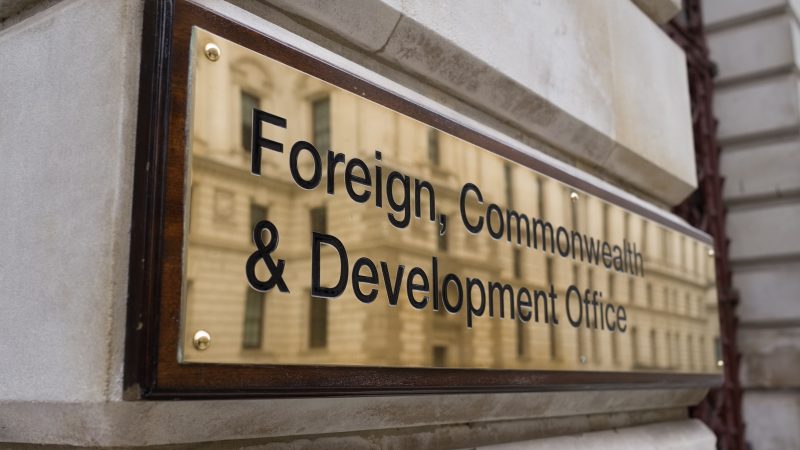
The annual survey of British attitudes to foreign policy issues was published on 19th July. Previous versions have been heavily relied on by government to help shape the tone and content of international policy. This year’s research, based on intensive polling data from more than 2,000 people from around the country and weighted for demographic and other factors, shows a marked shift in some views of Britain’s role in the world.
This is particularly relevant as Labour develops thinking around foreign policy issues – and suggests opportunities for a much stronger alignment between domestic, foreign, defence and international development priorities.
Top headlines from this years’ survey show and wide variety of things, all of which will be interesting to Labour members who care about foreign policy.
The public cares about Ukraine
The Ukraine conflict has heightened interest in foreign policy issues more generally within the population. Support for Britain’s membership of NATO is stronger and higher than ever – at 78% it has risen significantly over the last two years.
A majority of Britons support increasing defence spending to 2.5% of GDP – including 34% who believe we should slowly increase defence spending to reach that level over the next few years, and a quarter who believe we should increase spending immediately. Less than 1 in 10 Brits think that the UK should reduce defence spending.
Our views of the US and EU are complicated
Our view of the US is complex and contradictory. The majority of us see it as our most important international ally – but 25% of us don’t fully trust them to act responsibly in the world. This begs the question how a future Labour government can best engage with an American president and on which issues the relationship will be most productive – reinforcing the value and importance of recent stateside visits by Rachel Reeves and Nick Thomas-Symonds.
We are warming to closer co-operation with the EU and only a tiny proportion (5%) of respondents oppose all co-operation. Even a majority of Leave voters (58%) now support a stronger trade relationship with the EU.
The survey results show growing support for a more co-operation with both our EU neighbours and the EU itself – partly driven by the focus on greater pan-European collaboration as a result of the Ukraine invasion. However, trust in France has fallen by 9% over the last year, almost certainly as a result of the migrant channel crossing crisis.
Most think international development funding should be spent at home
Support for international development remains low. 61% of Britons believe international aid and development spending takes away money that should be spent on domestic needs.
Despite these concerns, the majority of Britons believe that the UK has a moral duty to use aid and development to contribute to a more secure and prosperous world (55%), and, to a lesser extent, perceive there to be strategic economic (52%) and security (44%) benefits.
Britons are also divided over whether the UK should return to the 0.7% of GNI (gross national income) aid and development spending commitment, with 30% of Britons believing the UK’s development commitment should be restored as soon as the UK government is able, while 20% believe the UK’s development commitment should remain reduced for the foreseeable future and 20% believe it should be reduced further.
Only 14% of Britons believe the UK should restore its 0.7% GNI spending commitment now. Bad news for those in the party campaigning for the restoration of the 0.7% of GDP funding to be spent on overseas development – it has no groundswell of public support.
Migration policy remains divisive
Finally, and perhaps unsurprisingly, Britain remains strongly divided on the right approach to managing migration. This is the most ‘marmite’ of all foreign policy issues coming from the survey, with people strongly divided and entrenched into either support (54%) or opposition (23%) to the illegal migration bill.
There is a marked difference in approach to potential extensions to existing visa and migration schemes for Ukrainians (61% support) and Afghans (59%) to Syrians (19%). This means that achieving a cohesive narrative for Labour on future migration policy is a Sisyphean task.
The survey presents a number of major challenges to Labour, and reveals how views of party members are in many cases significantly at odds with those held by the wider population. Understanding, sharing and ultimately helping to change the narrative on many of these key issues will be essential over the next year for Labour to ensure its approach to foreign policy issues are not an electoral liability in the general election campaign.




More from LabourList
Nudification apps facilitate digital sexual assault – and they should be banned
Diane Abbott suspended from Labour after defending racism comments
Labour campaign groups join forces to call for reinstatement of MPs